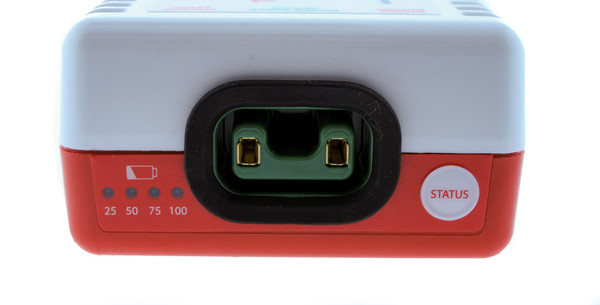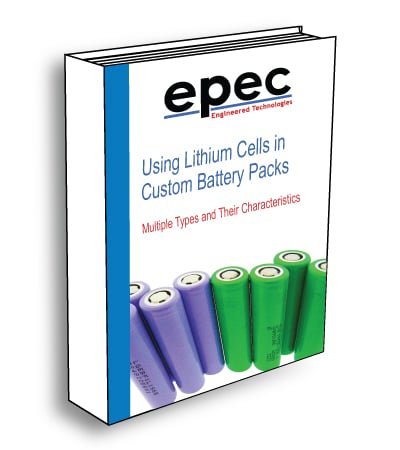
Fuel Gauges for Battery Packs
Ideally, fuel gauges in battery pack assemblies measure the level of remaining capacity in a battery under all conditions. A battery fuel gauge is much more complex that a fuel gauge in car for example. In a car the gas tank always remains the same size regardless of temperature, the age of the car, or how fast the gas is being consumed. The tank size always remains the same and the float gauge is always accurate.
In a battery the capacity "size of the tank" is always changing with temperature, aging, and at the rate of energy consumption, and even the type of chemistry used. In order to be able to calculate the remaining capacity in a battery, all of these factors must be accounted for. If any variable is ignored, the gauge becomes less accurate.

How Accurate Does the Fuel Gauge New To Be?
Depending on how the read out information will be interrupted and what type of application the battery will be used in, a less accurate fuel gauge may be sufficient.
To have a highly accurate fuel gauge, the fuel gauge needs to continuously measure parameters as the battery's environment use changes and the battery ages.
A fuel gauge helps minimize the size of the battery required. If there was no fuel gauge, the battery would need to be overdesigned and larger to run most applications. This is because the run time would be unknown and the risk of losing power may not be acceptable. If the exact amount of remaining energy is known the batty can be sized accordingly, making some small portable products viable.
In order to capture environmental data and calculate the remaining energy, a low-power dedicated microcontroller is used to measure the battery's voltage, the current going into and out of the battery, and the battery's temperature. This information is then processed using an algorithm that is designed for the particular battery used. The data is them presented to the end user in the form of LED lights or the data is communicated to the host system, so it can be displayed of the systems user interface.
Battery Fuel Gauges Cost Factors
Custom battery packs manufactured with fuel gauges vary widely when it comes to cost. A simple inaccurate voltage only based gauges can be inexpensive and work for applications where accuracy is not important. A highly accurate gauge can be more costly since it takes more components to collect the required data and process it.
Getting your supplier involved from a design standpoint early on will help you determine what is needed for you application. Avoid over designing a battery pack with features that may not be required to meet your applications' performance levels. Full design reviews can determine if a more cost effective solution is available.
For more information see our blog post titled "How Much Will A Battery Pack Fuel Gauge Add to the Cost of My Product".
Custom Fuel-Gauge Solutions
Optimize your battery pack and boost efficiency with our custom fuel-gauges for battery packs. Schedule a design review with our team or request a quote.
Request a Quote Request Design Support Request More Information








